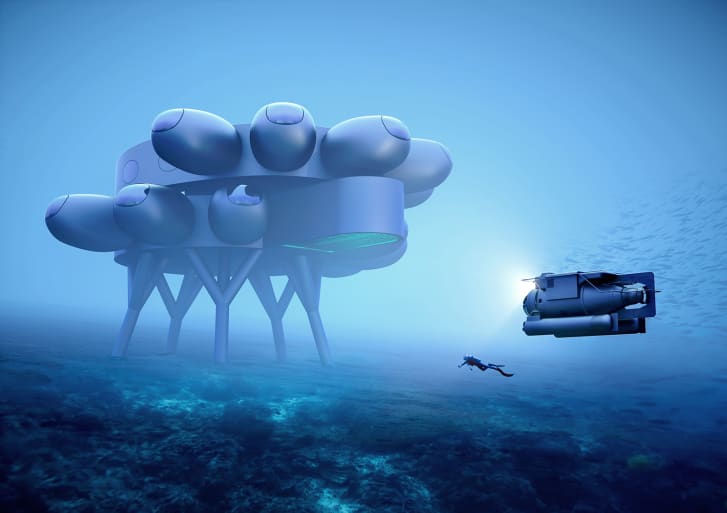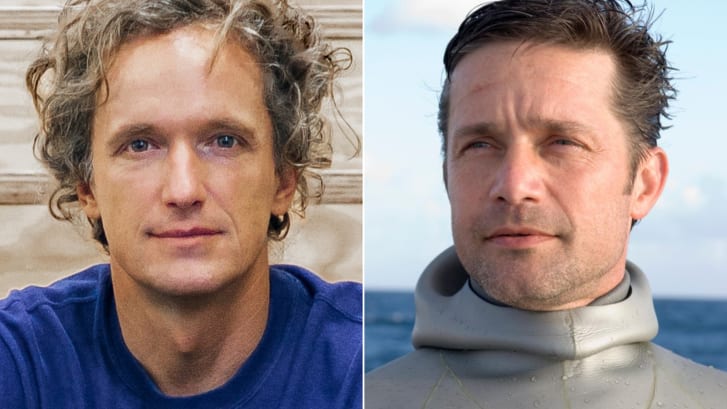 Sixty feet beneath the surface of the Caribbean Sea, aquanaut Fabien Cousteau and industrial designer Yves Béhar are envisioning the world's largest underwater research station and habitat. The pair have unveiled Fabien Cousteau's Proteus, a 4,000-square-foot modular lab that will sit under the water off the coast of Curaçao, providing a home to scientists and researchers from across the world studying the ocean -- from the effects of climate change and new marine life to medicinal breakthroughs. Designed as a two-story circular structure grounded to the ocean floor on stilts, Proteus' protruding pods contain laboratories, personal quarters, medical bays and a moon pool where divers can access the ocean floor. Powered by wind and solar energy, and ocean thermal energy conversion, the structure will also feature the first underwater greenhouse for growing food, as well as a video production facility. The Proteus is intended to be the underwater version of the International Space Station (ISS), where government agencies, scientists, and the private sector can collaborate in the spirit of collective knowledge, irrespective of borders.  Industrial designer Yves Béhar (left) and Aquanaut Fabien Cousteau (right) Industrial designer Yves Béhar (left) and Aquanaut Fabien Cousteau (right) "Ocean exploration is 1,000 times more important than space exploration for -- selfishly -- our survival, for our trajectory into the future," Cousteau said over a video call, with Béhar. "It's our life support system. It is the very reason why we exist in the first place." The newly unveiled design is the latest step for this ambitious project. According to Cousteau, it will take three years until Proteus is installed, though the coronavirus pandemic has already delayed the project. Cousteau comes from a family of famous oceanographic explorers. He's the son of filmmaker Jean-Michel Cousteau and grandson of Aqua-Lung co-creator Jacques-Yves Cousteau. The project is a joint effort between the Fabien Cousteau Ocean Learning Center (FCOLC) and Béhar's design firm Fuseproject, as well as their partners, which include Northeastern University, Rutgers University and the Caribbean Research and Management of Biodiversity Foundation. While the project currently has some backing from the private sector, it is currently seeking further funding. Beyond backers, the station's wet and dry labs can be leased to government agencies, corporations and academic institutions. Part of the plan is to offer regular visibility about what is happening on Proteus, including live streams and VR/AR content. In this way Cousteau hopes to engage a wider audience. “Imagine if you found something amazing -- whether it be microcosmic like a pharmaceutical, or macrocosmic like the next greatest animal -- if you could show it to classrooms and universities," he said. "Our mission is to be able to translate complex science into something that the average person not only maybe will understand, but fall in love with."
0 Comments
Leave a Reply. |
BLOGArchives
January 2025
Categories
All
|